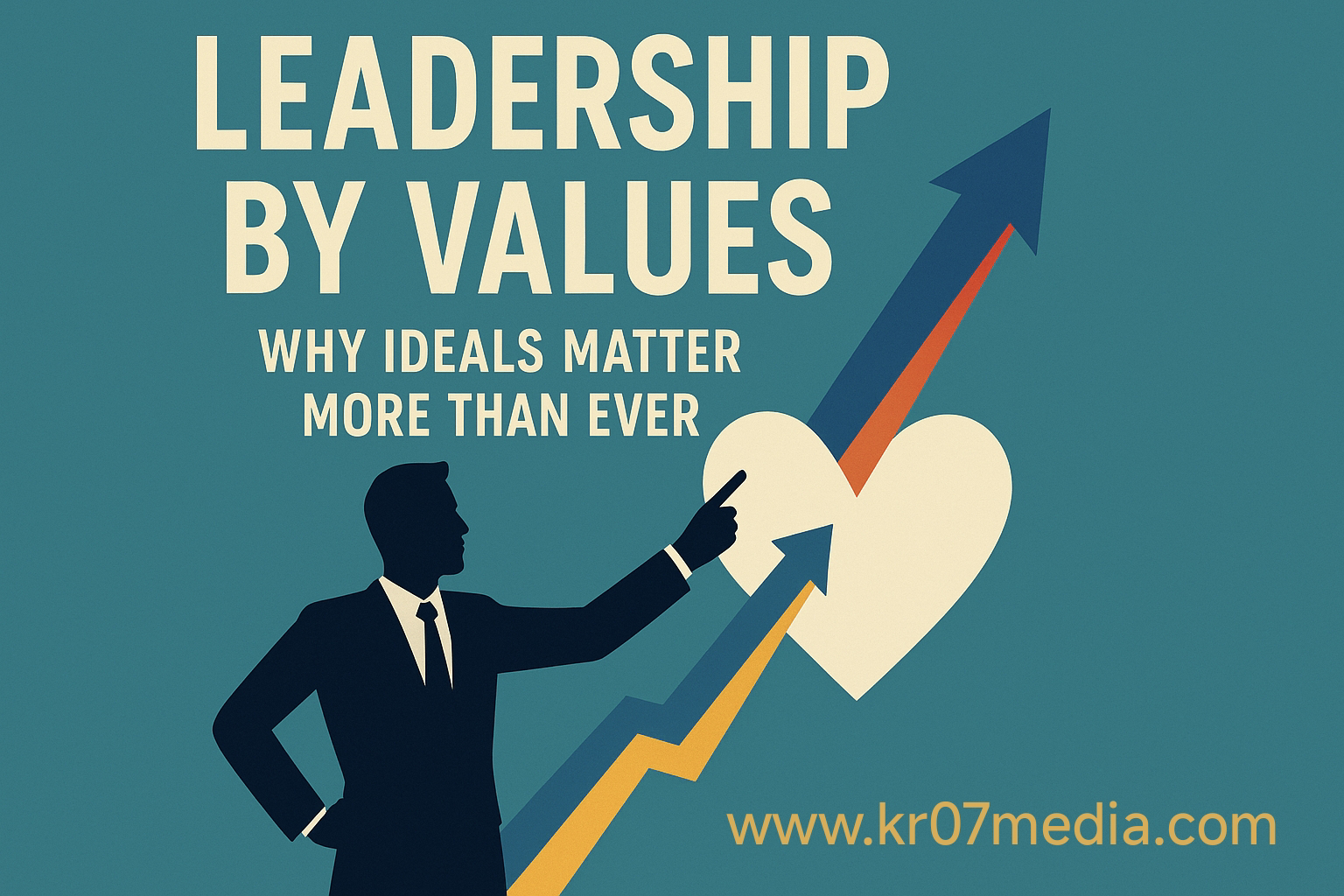In an age marked by rapid change, technological disruption, and widespread distrust in institutions, leadership is undergoing a quiet but powerful transformation. Gone are the days when charisma, strategy, or brute efficiency alone defined successful leaders. Today, what truly distinguishes enduring leadership is something deeper—values.
Leadership by values means guiding decisions, policies, and people through a clear, unwavering commitment to moral principles. These values—like integrity, fairness, humility, empathy, and responsibility—are no longer optional; they are essential for trust, cohesion, and long-term success. Let’s explore why ideals matter more than ever in the evolving landscape of leadership.
1. Values Build Trust in a Distrustful World
In a time when public confidence in political figures, corporate executives, and even non-profit leaders is declining, values-based leadership stands as a counterforce. Leaders who consistently demonstrate honesty, transparency, and accountability inspire trust—not through speeches or slogans, but through action.
When values align with behavior, people believe. This trust becomes the bedrock of loyalty, collaboration, and resilience in any organization or society.
2. In Turbulent Times, Values Are Anchors
The 21st century has brought economic shocks, pandemics, climate disasters, and social upheaval. In such uncertain environments, strategies can fail, markets can crash, and plans can go obsolete—but values endure. They provide stability in chaos, helping leaders make decisions not based on short-term pressures but on what is right and sustainable.
A leader guided by values doesn’t simply ask, “What works?” but also, “What is ethical?” and “What reflects our core identity?”
3. Millennials and Gen Z Demand It
The new generations entering the workforce care deeply about the values of the companies and leaders they follow. For them, leadership is not just about financial performance but also about purpose and impact. They prefer employers who prioritize environmental sustainability, inclusion, mental health, and social justice.
Leaders who embody ideals earn the loyalty and passion of these purpose-driven individuals—fueling innovation, culture, and long-term vision.
4. Values Guide Ethical Decision-Making
In an era driven by data and AI, ethical dilemmas are more complex and widespread. Should a company use consumer data for profit? How should bias in algorithms be addressed? What’s the responsibility of a corporation toward climate change?
A values-based leader is not paralyzed by these dilemmas. Their ideals serve as a compass. Whether it’s upholding privacy, advocating for diversity, or refusing to exploit grey areas for gain, leaders with strong ethics make difficult decisions easier.
5. Crisis Reveals Character
The real test of leadership comes during adversity. Crises don’t create character—they reveal it. Leaders who stay true to their values when it’s hardest to do so leave a lasting legacy. Consider leaders during the COVID-19 pandemic who prioritized the safety of employees over profit, or activists who sacrificed comfort for justice.
These are the leaders we remember, not just for their outcomes but for their courage and conviction.
6. Values Shape Culture—and Culture Drives Success
Culture is the soul of any organization, and leadership sets the tone. When leaders model empathy, humility, and integrity, it spreads. Teams mirror their behavior. A culture rooted in values fosters collaboration, innovation, psychological safety, and mutual respect.
This is not just idealistic—it’s practical. Studies consistently show that organizations with strong ethical cultures outperform their peers in retention, satisfaction, and financial metrics.
7. Leadership Without Values is Power Without Purpose
Power, influence, and authority are neutral tools. What matters is how they’re used. Without a moral foundation, leadership becomes manipulation; influence becomes exploitation. History is filled with examples of talented leaders who lacked ethical restraint—and the damage they caused is a grim reminder of the cost.
True leadership isn’t about control, it’s about stewardship. It’s about using one’s position to serve others, champion justice, and inspire positive change.
Conclusion: The Rise of Values-Centered Leadership
In today’s interconnected, high-stakes world, we need leaders who do more than chase results. We need leaders who represent who we are and who we aspire to be.
Leadership by values is not soft or sentimental. It is resilient, powerful, and deeply strategic. It calls on leaders to lead not just with their minds, but with their conscience. And as the world becomes more complex, those who lead with clarity of purpose, courage of ideals, and consistency of character will not only succeed—they will shape the future.
Because in the end, people may forget what a leader said or did—but they will never forget what they stood for.



